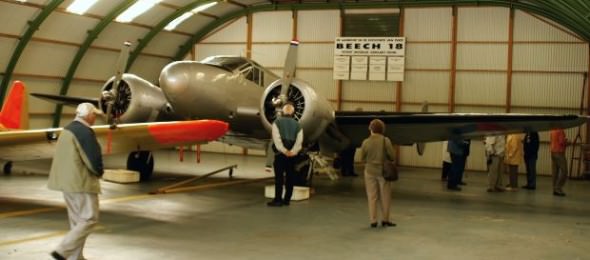Texas’ Fourth Court of Appeals has ordered two companies to arbitrate a contract dispute related to the construction of airplane hangars in Mexico. In IBS Asset Liquidations LLC v. Servicios Multiples Del Norte SA de CV, No. 04-13-00273-CV (Tex. App. – San Antonio 2013), IBS Asset Liquidations LLC, formerly known as Icon Building Systems, LLC, (“Icon”) agreed to design and build an airplane hangar for Servicios Multiples Del Norte SA de CV (“Servicios”). As part of the agreement, the two companies signed a contract that included an arbitration clause which states the Federal Arbitration Act applies to any disputes. In late 2010, Servicios filed a lawsuit alleging breach of contract, fraud, negligence, and other claims against Icon in McLennan County, Texas.
After the lawsuit was filed, Icon responded with an answer, engaged in discovery, and joined a motion to transfer the case to Bexar County where the dispute was set for jury trial. Five months prior to trial and more than two years after Servicios’ complaint was filed, Icon filed a motion to compel the parties’ dispute to arbitration. Servicios responded by stating Icon waived its right to arbitration due to the company’s substantial involvement in the judicial process. A trial court denied Icon’s motion to compel arbitration and Icon filed an interlocutory appeal with Texas’ Fourth Court of Appeals in San Antonio.
According to the appeals court, Icon waived its right to arbitration by substantially invoking the judicial process. Despite this, two of the three judges also found that Servicios failed to demonstrate it would suffer prejudice if the dispute were arbitrated instead of litigated. Because “showing prejudice is generally an evidentiary burden,” the San Antonio court concluded in a 2-1 opinion:
After examining the totality of the circumstances on this sparse record, we conclude Servicios did not satisfy the “high hurdle” of demonstrating “the fact of prejudice.” Perry Homes, 258 S.W.3d at 584, 599. Therefore, the trial court erred in denying Icon’s motion to compel arbitration. We reverse the trial court’s order and remand the case to the trial court for further proceedings.
In her dissent, Judge Alvarez disagreed by stating:
Icon knew about the arbitration clause before the contract was executed. It chose not to compel arbitration when it answered. For twenty-eight months Icon gave every indication it intended to resolve the matter in court. By its extended participation in the judicial process through discovery, trial settings, and motions, Icon “engage[d] in pretrial activity inconsistent with an intent to arbitrate.” See Perry Homes, 258 S.W.3d at 600. Servicios did not have to prove the specific amounts of its expenses, and Icon’s actions made it easier for Servicios to meet its burden. See Perry Homes, 258 S.W.3d at 600; see also Republic Ins. Co., 383 F.3d at 347.
In my view, considering the totality of the circumstances, the record presents sufficient evidence of the fact of prejudice to meet the applicable burden. I would affirm the trial court’s order denying Icon’s motion to compel arbitration. Therefore, I respectfully dissent.
What do you think? Should Icon’s motion to compel arbitration have been granted?














